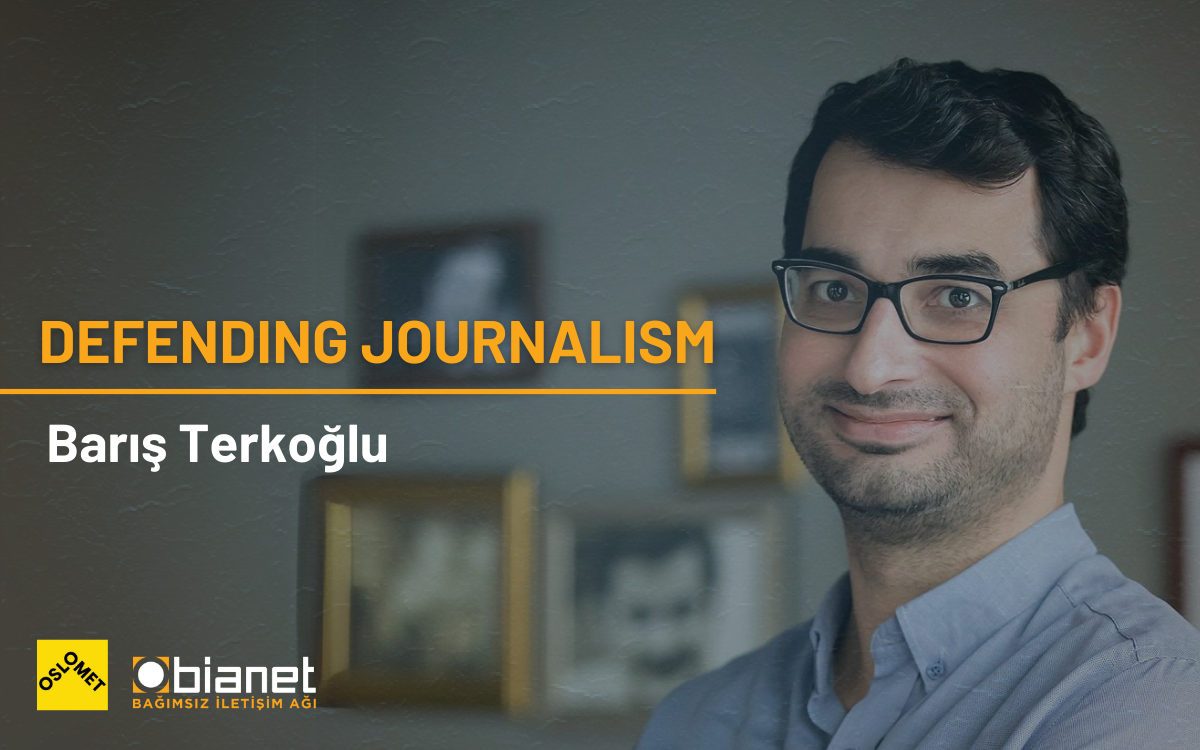DEFENDING JOURNALISM - 4
Journalism that will make us say 'it was worth it'


As I write these notes, expecting you to ask me to recount the violations in my journalism story, a 28-year-old journalist I had once worked with was arrested. Naturally, while I may be reminded of my past experiences, the story is actually forecasting the future...
There are both good and bad reasons for us to talk about the pressures faced by journalists in Turkey. The good reason is that the country's journalism tradition, regardless of the circumstances, continues to expose unlawful actions, corruption, and societal issues. Moreover, it can create public awareness. Try to stretch your memory. How many recent events have you heard of and been surprised by, only because journalists chased after them? How many of those would you have learned about without journalists? And in how many cases, thanks to the efforts of journalists, was even a small step forward taken?
These are the good reasons...
There is no need to elaborate on the bad reason. We are faced with a number of power centers, led by the government, that view the truths exposed by journalists as a threat. They have apparatuses, such as the judiciary, at their disposal to stop journalists.
And so, it is within this conflict between good and bad that the conditions we find ourselves in are explained.
Prison within a prison
In fact, it is not difficult to enter the circle. In the first year of my journalism career, which began in 2008, a single report I did was enough to make me a defendant in a terrorism case. The judges, prosecutors, and police involved in the Ergenekon case had met for a meal shortly before the trial began. This was an issue that could cast a shadow on the impartiality of the judiciary. When I received photos of the meal, I didn’t hesitate. I wrote the story. At the time, the judiciary, which was dominated by the Gülenists, didn’t hesitate to use its judicial powers to protect itself. I was charged with "targeting public officials engaged in the fight against terrorism."
The difference between journalists’ pursuit of neutrality and that of the judiciary was so stark...
The presiding judge at the trial was one of the names in the photo. He would decide on whether his own picture should be published.
Apart from the lawsuits that were filed in between, my house was raided in 2011 in a police operation. I was detained and arrested along with a group of journalists within the scope of the Ergenekon case. The questions asked to me, the charges in the indictment, and the so-called evidence presented to me were all based on the articles I had written. The powerful judiciary of the period, controlled by the Gülenists, led by figures like Zekeriya Öz, was working to label us as terrorists. The sentences requested for all of us ranged from 20 to 30 years. I was held in detention for 19 months. During this time, I became acquainted with punitive practices, starting with isolation.
Even in prison, there was negative discrimination. If you were in prison for a common crime, you had access to various social opportunities. But if you were a political prisoner, you entered a second prison within the prison. The regime had even prepared its prisons in a way that chose its enemies.
The threats of the mafia regime
The fight between the government and the Gülenists was a struggle for power. Its effect was seen in the purges within the judiciary, the police, and the military.
However...
People changed, but the system did not. The old system continued itself with new names.
We had been acquitted in the case where we served 19 months in prison. The state had said "sorry." But as we continued to write, new cases started knocking on our door immediately.
What followed was the system's mafia-like nature. Of course, the mafia in Turkey has always been closely intertwined with the state. But this time, the system had directly aligned itself with the mafia. A significant portion of the power vacuum left by the Gülenists had been filled by the mafia. The order, from the economy to bureaucracy, was in close contact with the mafia in all its institutions.
The result of this in journalism was the normalization of threats.
During this period, in addition to the trials, I was also introduced to a cleric's explicit death threat. He said that my fate would be like those at Charlie Hebdo. But while the judiciary focused on two words from a journalist, it remained indifferent to open threats. Another threat was closer. The state, seemingly taking it seriously, issued a protection order for me. No, of course, I wasn’t going to walk around with a bodyguard. I would only ask for help in case of danger. What happened, you ask? After my article criticizing the former Minister of the Interior, the state lifted my protection order.
Politicians targeting journalists from the podium in the Parliament, the Minister of the Interior insulting people on social media, or being included in the “targets” list of the so-called nationalist party…
This was the period when those who said "the state is mine" openly targeted and threatened journalists.
Preemptive punishment cases
The judiciary had become so subjugated...
The judiciary, which we saw in the Gezi trial, where it blatantly "did what it was told," became the general system. During this period, our book Cendere faced a total of 33 lawsuits and investigations from the President’s lawyers. In total, almost 200 years of imprisonment was sought.
But in Turkey, mixing water with milk in the judiciary is not enough...
You must inevitably be confronted with a charge related to terrorism or state security. First, the target person is selected, and then the case follows. That’s exactly what happened. A case related to state security was fabricated from the funeral news of a deceased intelligence officer. I was once again arrested along with a group of journalist colleagues. I was held in isolation for another four months. The penal provisions of this process were not applied to me or my journalist friends. Strange, but once again, I was acquitted, and all I was left with was the time I had spent in prison. This was the essence of journalist imprisonment. Preemptively punishing. Even trivial reasons were used as excuses.
Two more years in prison
I am still being tried in several cases. One of them has already resulted in a prison sentence. Due to an article I wrote about the current Chief Prosecutor of Istanbul, I was tried by his former colleagues in the court where he had once served as a judge. The article I wrote was about what I had experienced years ago with that judicial officer.
The Chief Prosecutor I criticized had imposed a series of bans on our Mahrem book, which described the partnership between the government and the Fethullah Gülen movement, in 2015. Today, this same judicial officer appears in all political cases. Reminding these coincidences led to my receiving a two-year prison sentence. I am currently waiting for the appellate court to uphold it, and for my imprisonment to begin.
Telling the story despite everything
Along with all these events, there is one more thing. If you are targeted in any way, your punishment is also carried out through your personality. You are pointed out in government-controlled media, attacked by troll networks, subjected to below-the-belt assaults, and discredited.
Imprisonment, isolation, unemployment, threats, bans, censorship...
This is a summary of what I’ve gone through. Yet, I remain hopeful, both for journalism and for my country. Despite everything, the generation I belong to does not give up on writing, reporting, and speaking out. It continues to pass on the legacy it has inherited from the past to the future. Like surviving under wartime conditions, sometimes we use the language of Aesop, sometimes we hint with "you know what I mean," and at times, we pay the price with our necks, wearing the cost of our actions on our shoulders. While the form of expression may change, its essence does not. In the end, the truth always finds a way to be revealed.
Naturally...
We know that today’s suffering illuminates tomorrow. Looking back in the future, I’m sure we will say, “It was worth it!”
Defending Journalism
1- The persistence in journalism - İsmail Arı
(BT/VC/VK)





